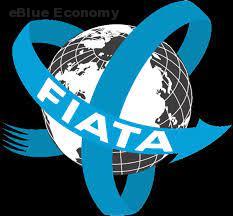FIATA, the International Federation of Freight Forwarders Associations, has worked on the release of this long-desired document update to ease the work processes of its members, allowing them to become digital freight-forwarders.

FIATA is proud to bring its members a pragmatic solution to move from paper documents to paperless FIATA BLs, which can be issued directly through their everyday tools.
The FIATA solution improves the level of security of the FIATA BL in comparison to the paper version, making use of blockchain technology to authenticate the documents and provide an audit trail.
Conscious of the various challenges which remain to be overcome to achieve worldwide adoption and legal recognition of the electronic exchange of data, the paperless FBL is an answer to the needs of the industry for improved access and exchange of trade documents.

The document issuer can decide in which format (s)he wishes to share the original unaltered document with its stakeholders: in paper form or as a PDF. Based on its eFBL data standard,
FIATA has developed an API service, available free of charge to all software providers, allowing them to connect with FIATA to create secured paperless FBLs.
As of today, seven software providers have already signed an agreement with the Federation to implement the solution: AKANEA, Cargowise, CargoX, edoxOnline (Global Share), InfoSysTech-IST, Nabu, and Usyncro.
We are very pleased to announce that the paperless FBLs can start to be issued as of today with edoxOnline, InfoSysTech-IST, and Usyncro who have already finalized the implementation.
FIATA encourages all TMSs, eBL providers, and other software providers to join them and implement FIATA’s solution to offer this new service to their customers. All technical specifications are available on FIATA’s GitHub repository.
The solution, developed by FIATA partner Komgo, will help to reduce fraud risks, as each document is recorded on an immutable ledger and will be verifiable at any time by all stakeholders interacting with the document.
Stakeholders will be able to either scan the QR code at the top right of the document or directly upload the PDF on FIATA’s verification page to access the document audit trail which will
- certify the validity of the document,
- the identity of its issuer,
- and the integrity of its content.
Souleïma Baddi, CEO of Komgo, when asked to comment on the paperless FBL launch said: ‘Documents are the bedrock of international trade, but they don’t operate as we need them to and they’re susceptible to fraud and forgery, that happens quite often.
Trakk is the digital ecosystem of trust for trade documents. I am thrilled to see FIATA joining all companies, financial institutions, warehouses, and others who are using Trakk to protect their documents against fraud.’
‘WiseTech Global congratulates FIATA on the launch of their electronic bill of lading.’ The company continued: ‘This initiative will support transparency and security across the supply chain and will help companies to accelerate their digitalization efforts. It was a pleasure to work with FIATA on this initiative. CargoWise customers will be able to request a connection to FIATA’s eFBL from June 2022.’
‘FIATA is very excited to embark on this important milestone of its digital journey which paved the way for great opportunities for the future of freight forwarders.’, said FIATA Director-General Stéphane Graber.
FIATA, the International Federation of Freight Forwarders Associations, is a non-governmental, membership-based organization representing freight forwarders in some 150 countries.
FIATA’s membership is composed of 109 Association Members and over 5,500 Individual Members, overall representing an industry of 40,000 freight forwarding and logistics firms worldwide.FIATA is a reference source on international policies and regulations governing the freight forwarding and logistics industry.
FIATA works at the international level to represent service providers who operate in trade logistics and supply chain management. Through its FIATA documents and forms, congress, training, and publications, it promotes trade facilitation and best practices among the freight forwarding community.
















